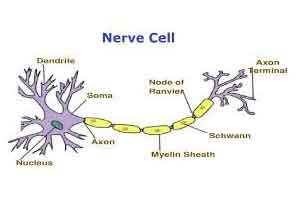- Home
- Editorial
- News
- Practice Guidelines
- Anesthesiology Guidelines
- Cancer Guidelines
- Cardiac Sciences Guidelines
- Critical Care Guidelines
- Dentistry Guidelines
- Dermatology Guidelines
- Diabetes and Endo Guidelines
- Diagnostics Guidelines
- ENT Guidelines
- Featured Practice Guidelines
- Gastroenterology Guidelines
- Geriatrics Guidelines
- Medicine Guidelines
- Nephrology Guidelines
- Neurosciences Guidelines
- Obs and Gynae Guidelines
- Ophthalmology Guidelines
- Orthopaedics Guidelines
- Paediatrics Guidelines
- Psychiatry Guidelines
- Pulmonology Guidelines
- Radiology Guidelines
- Surgery Guidelines
- Urology Guidelines
3D technology to help create human nerve cells for transplant in brain

Washington : A group of US researchers has developed a 3D micro scaffold technology that promotes reprogramming of stem cells into neurons and supports growth of neuronal connections capable of transmitting electrical signals.
The injection of these networks of functioning human neural cells compared to injecting individual cells dramatically improved their survival following transplantation into mouse brains.
This is a promising new platform that could make transplantation of neurons a viable treatment for a broad range of human neurodegenerative disorders like Parkinson's.
Previously, transplantation of neurons to treat neurodegenerative disorders had very limited success due to poor survival of neurons that were injected as a solution of individual cells.
The new research is supported by the National Institute of Biomedical Imaging and Bioengineering (NIBIB), part of the US National Institutes of Health.
"Working together, the stem cell biologists and bio materials experts developed a system capable of shuttling neural cells through the demanding journey of transplantation and engraftment into host brain tissue," explained Rosemarie Hunziker, director of the NIBIB programme in tissue engineering and regenerative medicine.
The research was performed by researchers from universities like Rutgers, Stanford, the Human Genetics Institute of New Jersey, Piscataway and the New Jersey Center for Biomaterials, Piscataway.
The researchers experimented in creating scaffolds made of different types of polymer fibres and of varying thickness and density.
They ultimately created a web of relatively thick fibres using a polymer that stem cells successfully adhered to.
The stem cells used were human induced pluripotent stem cells (iPSCs) which can be readily generated from adult cell types such as skin cells.
The iPSCs were induced to differentiate into neural cells by introducing the protein NeuroD1 into the cells.
The neurons on the scaffolds had dramatically increased cell-survival compared with the individual cell suspensions.
The scaffolds also promoted improved neuronal outgrowth and electrical activity.
The team is now refining their system for specific use as an eventual transplant therapy for Parkinson's disease.
The injection of these networks of functioning human neural cells compared to injecting individual cells dramatically improved their survival following transplantation into mouse brains.
This is a promising new platform that could make transplantation of neurons a viable treatment for a broad range of human neurodegenerative disorders like Parkinson's.
Previously, transplantation of neurons to treat neurodegenerative disorders had very limited success due to poor survival of neurons that were injected as a solution of individual cells.
The new research is supported by the National Institute of Biomedical Imaging and Bioengineering (NIBIB), part of the US National Institutes of Health.
"Working together, the stem cell biologists and bio materials experts developed a system capable of shuttling neural cells through the demanding journey of transplantation and engraftment into host brain tissue," explained Rosemarie Hunziker, director of the NIBIB programme in tissue engineering and regenerative medicine.
The research was performed by researchers from universities like Rutgers, Stanford, the Human Genetics Institute of New Jersey, Piscataway and the New Jersey Center for Biomaterials, Piscataway.
The researchers experimented in creating scaffolds made of different types of polymer fibres and of varying thickness and density.
They ultimately created a web of relatively thick fibres using a polymer that stem cells successfully adhered to.
The stem cells used were human induced pluripotent stem cells (iPSCs) which can be readily generated from adult cell types such as skin cells.
The iPSCs were induced to differentiate into neural cells by introducing the protein NeuroD1 into the cells.
The neurons on the scaffolds had dramatically increased cell-survival compared with the individual cell suspensions.
The scaffolds also promoted improved neuronal outgrowth and electrical activity.
"A critical finding was that the neurons on the micro-scaffolds expressed proteins that are involved in the growth and maturation of neural synapses - a good indication that the transplanted neurons were capable of functionally integrating into the host brain tissue," noted the authors in a paper appeared in the journal Nature Communications.
The team is now refining their system for specific use as an eventual transplant therapy for Parkinson's disease.
The plan is to develop methods to differentiate the stem cells into neurons that produce dopamine, the specific neuron type that degenerates in individuals with Parkinson's disease.
Human Genetics Institute of New Jerseyinduced pluripotent stem cellsiPSCsNational Institute of Biomedical Imaging and Bioengineeringnerve cellsNew Jersey Center for BiomaterialsNIBIBParkinson disease
Source : IANSNext Story
NO DATA FOUND

Disclaimer: This site is primarily intended for healthcare professionals. Any content/information on this website does not replace the advice of medical and/or health professionals and should not be construed as medical/diagnostic advice/endorsement or prescription. Use of this site is subject to our terms of use, privacy policy, advertisement policy. © 2020 Minerva Medical Treatment Pvt Ltd